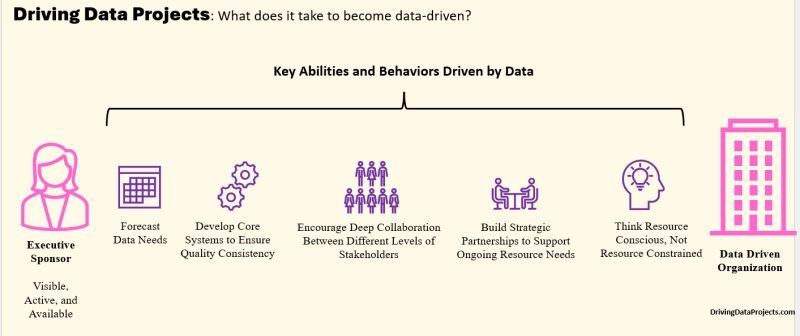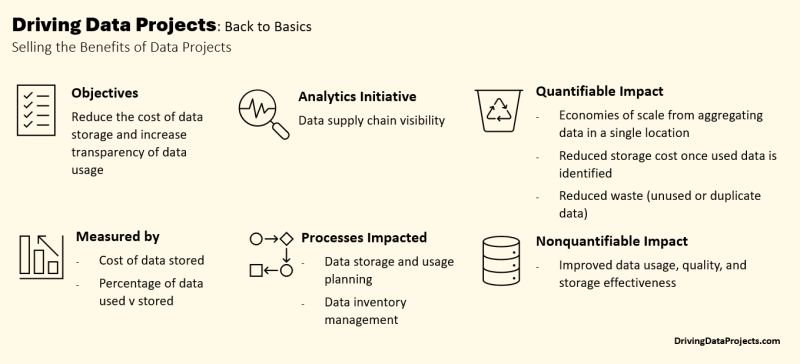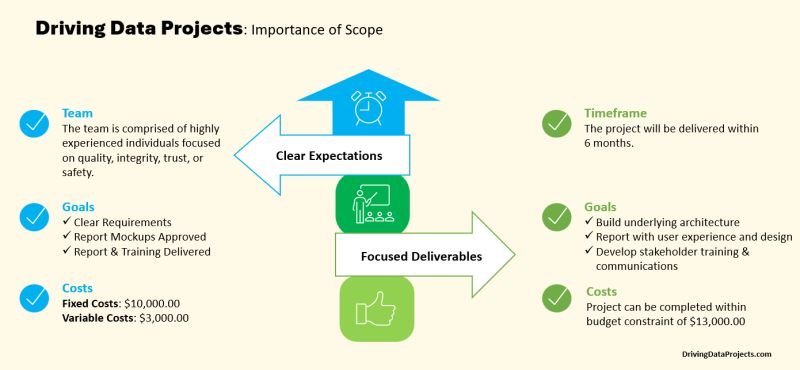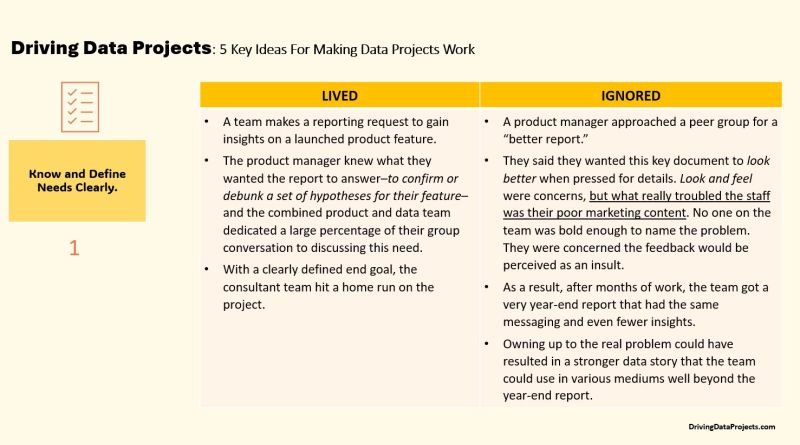
Countdown: Book Excerpt Chapter 2
While a fully funded budget that supports data as a service is an integral part of a data transformation’s financial picture, few are fully staffed or funded. Three-quarters of executives confirm their organization now has some form of data strategy (however rudimentary), but a paltry 16% say they have the skills and capabilities necessary to deliver it. Even though the average staffing budget is growing yearly, finding the skills and capabilities to execute data projects is becoming harder and harder.

Countdown: Book Excerpt Chapter 1
Data has traditionally been managed by a combination of information technology (IT), Operations, and Finance. Over the last ten to fifteen years, the chief data officer (CDO) role has come onto the executive scene. While not yet a universal title, the role of the CDO started by reporting through these functions and is beginning to be considered separate.

Linking Projects to Strategy
It can be challenging when stakeholders cannot translate business questions into technical requirements or do not provide enough context for data teams to do so. From there, the data team is often left to maintain the status of a series of ad hoc projects rather than connect these business questions to a larger more defined data strategy.


What does it take to become Data-Driven?
Since most people don’t know a lot about IT organizations or data teams it’s important to understand why moving from ad hoc efforts to a mature approach to driving data projects makes sense. The timing might not be right (now). Becoming data driven through data as a service requires a serious investment of resources, finances, staff, equipment, services, etc.; scaling efforts will only increase those topline demands. It’s a serious ongoing commitment many organizations find themselves surprised by—even today.

Back to Basics: Selling the Benefits of Data Projects
Data teams should be regarded as intentional business partners because they provide the underlying technology that enables business strategy and maintain data as a corporate asset. They can help educate business partners on the upstream and downstream impacts of poor data quality and they can help cultivate more effective ambassadors for data governance across the organization.

Finding Meaning in Data Projects by Asking: WHY
Most data teams cover WHAT and HOW with standard reports and KPIs. They will optimize processes and analyze business domains that will impact the company's bottom line from a data perspective. But how many data teams truly understand the WHY behind the reports they generate? How many actively consult with the business as a true partner to understand the underlying business concerns behind the numbers? Without the WHY, delivering true value in the WHAT and HOW is ten times harder.

The Importance of Scope
In driving data projects, I find people underestimate the impact of scoping projects effectively. Too often, you see technology leads with new platforms or tools looking for a problem to solve, or business leads with a unique one-off request from an executive reporting forum carry over to a data team as a priority requirement, whether it is or not.

Data Consumers Must Be Mechanics & Pilots: 5 Takeaways from the Guide
As data consumers, we need to be both mechanics and pilots. We must know how to gather, cleanse, and prep—and present data, make data-driven decisions, and influence data. That is a very broad set of skills.

Writing A Book Is Like Getting A Tattoo
Writing a book is a lot like getting a tattoo. It’s permanent. It marks a life transition. It's also 95% pain, 2.5% novelty, and 2.5% talking that novelty to others. It's proof I was able to push past the anxiety and deal with the pain to do something creative. Finishing is a wonderful feeling of accomplishment, proof that I made it past all the barriers.

Going Deeper: Making Projects Work
When we live into our best intentions, things that sound like common sense to everyone (like defining needs clearly), there is no end to the impact we can make. Such a seemingly small thing can permeate the mood and morale of the team, the synergy between team members, and raise the performance of the group. Such clarity can literally become the wind needed from behind versus a nasty headwind we feel we have to fight. And the crazy thing? It’s within our control to bring that clarity to every conversation.

Dos and Donts for Analysts Relying on ChatGBT
Data analytics is filled with complexity. Anyone saying otherwise is selling products. Knowing the data sources, data sets, general lineage, and behavior of the numbers are table stakes for the average data consumer. We must know where our data comes from. Much like we need to know where our food comes from and how it's processed. Is it safe to consume?